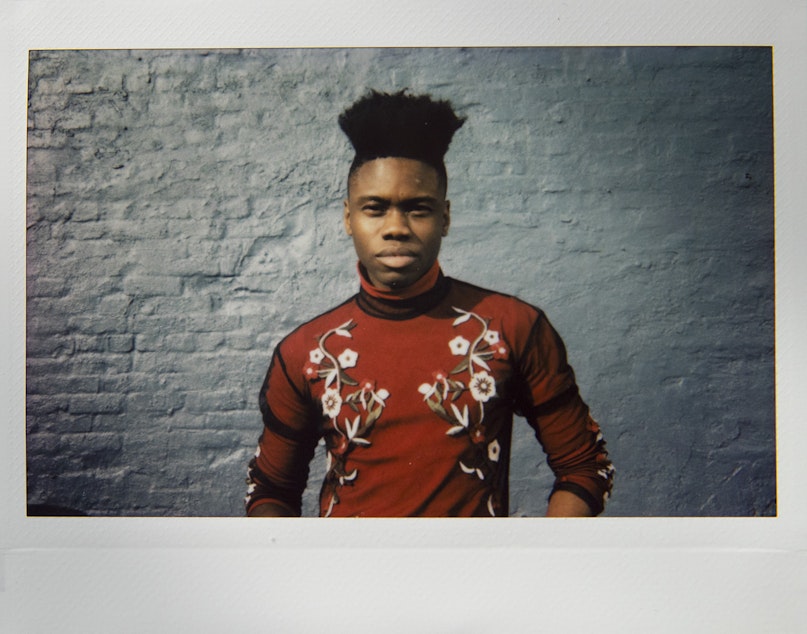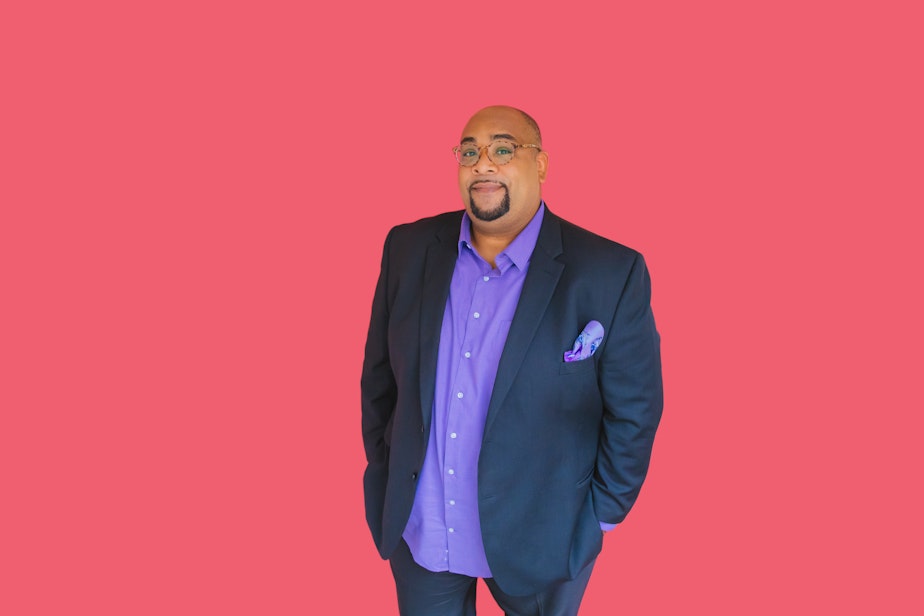Seattle artist says dismantling racism takes more than a hashtag

A couple of weeks ago, Seattle artist David Rue started calling out local arts organizations by name on his social media feeds.
Rue wanted them to take a hard look at the systemic racism inside their own organizations, then do something about it.
“These are people that said ‘we’re so passionate about black artists,” says Rue. “And I thought I would speak to them directly.”
As more and more people take to the nation’s streets demanding an end to police brutality against Black Americans and systemic racism, businesses—including many Seattle cultural groups--have produced a flurry of solidarity statements, declaring that Black Lives Matter and denouncing racist policing. Rue says it’s time for local arts groups to go beyond what he calls performative support to make authentic change.
“Because a lot of us are artists,” he says. "And we can tell when you’re performing.”
For Rue and other Black artists and administrators, substantive change is a process that involves frank conversations followed by meaningful actions:
- Hiring more people of color at all levels, but particularly in leadership positions;
- Moving beyond token inclusion of works by artists of color--actually rethinking what inclusivity means when it comes to curation;
- And listening to communities of color to find out what they want to see in theaters, museums and concert halls.
Sponsored
For large, established arts groups dependent on mainly white patrons and donors, these changes might feel scary, according to Brian Carter, Executive Director of 4Culture, King County’s arts and culture agency.
Sponsored
He says when cultural organizations truly embrace an anti-racist lens, they take a risk.
“You’re risking that you might lose patrons, you’re risking that you might lose visitors, you’re risking that you might lose potential donors,” Carter said.
It’s a risk Carter believes every cultural group must take. As 4Culture’s leader, Carter has worked with his staff and board to put racial equity at the center of the agency’s funding and advocacy work. 4Culture is collecting data to track the impact of its own work, and that of the organizations it supports.

Sponsored
But he admits that many white arts leaders are unsure where to start, what to do first.
“And I always reframe that,” Carter explains. “It’s not about what you do, it’s about who you are.”
He’s not interested in outward-facing changes designed to show the public the organization cares about racial equity. Carter wants organizations to embrace racial equity as a goal, enshrining it in their mission statements, and funneling resources toward this priority, on both the program and administrative sides of the organization. He acknowledges this kind of transformation won’t happen overnight, and he worries that once mass demonstrations die down, white Americans will lose their enthusiasm to do the hard work necessary for systemic change.
“My outrage, I had this last week. I’ll have it the first Tuesday in November,” Carter says. “You cannot let this event…you can’t peak with it.”
Artist David Rue agrees, and he challenges the arts groups he called out in his posts to take a deep look at how they’re perpetuating racism, then do something to break that cycle.
Sponsored
“What we’ll start seeing is, hopefully, is more honesty about organizations not doing this work now, feeling they’re incredibly behind,” Rue says.




